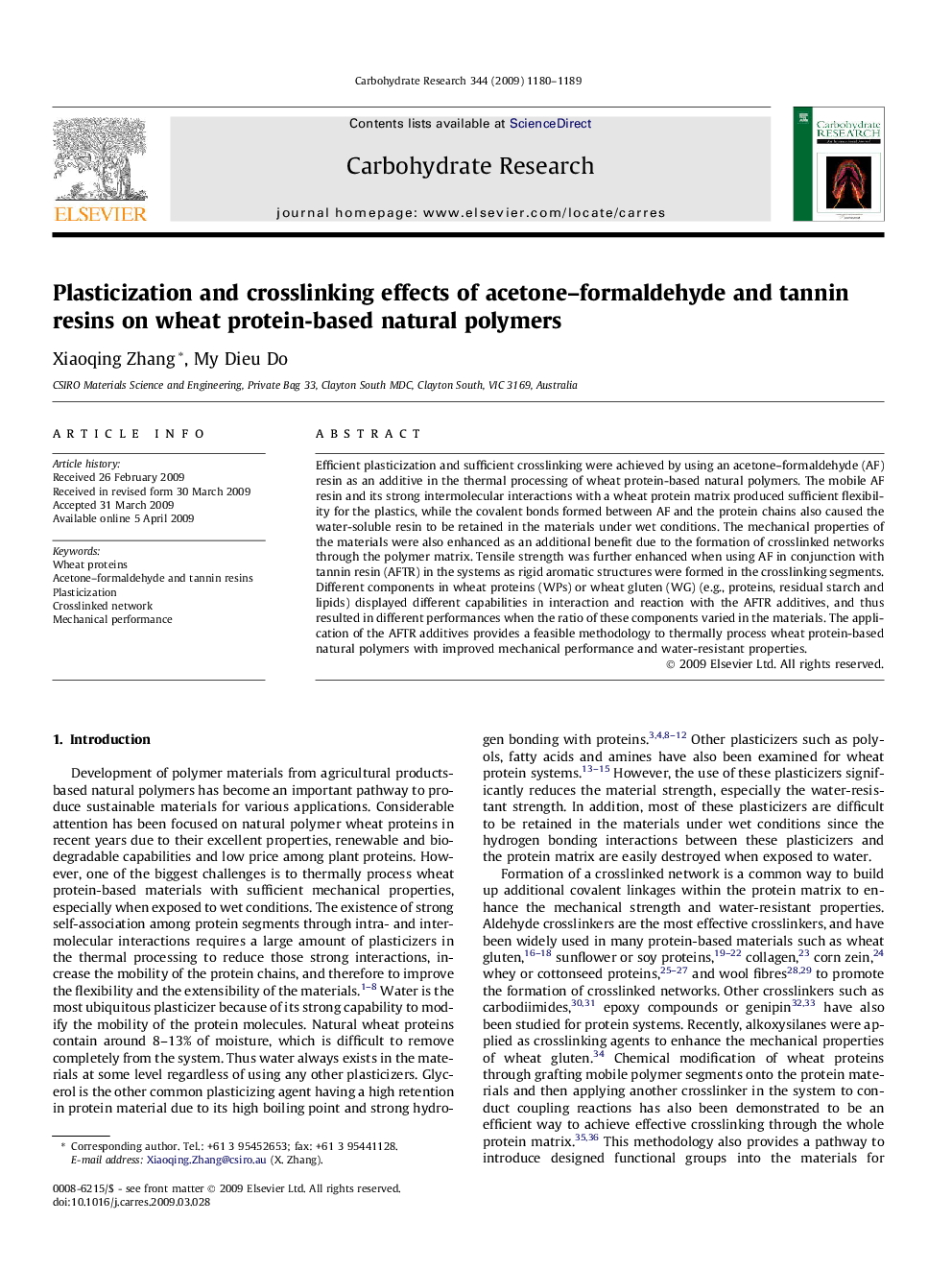| Article ID | Journal | Published Year | Pages | File Type |
|---|---|---|---|---|
| 1388324 | Carbohydrate Research | 2009 | 10 Pages |
Efficient plasticization and sufficient crosslinking were achieved by using an acetone–formaldehyde (AF) resin as an additive in the thermal processing of wheat protein-based natural polymers. The mobile AF resin and its strong intermolecular interactions with a wheat protein matrix produced sufficient flexibility for the plastics, while the covalent bonds formed between AF and the protein chains also caused the water-soluble resin to be retained in the materials under wet conditions. The mechanical properties of the materials were also enhanced as an additional benefit due to the formation of crosslinked networks through the polymer matrix. Tensile strength was further enhanced when using AF in conjunction with tannin resin (AFTR) in the systems as rigid aromatic structures were formed in the crosslinking segments. Different components in wheat proteins (WPs) or wheat gluten (WG) (e.g., proteins, residual starch and lipids) displayed different capabilities in interaction and reaction with the AFTR additives, and thus resulted in different performances when the ratio of these components varied in the materials. The application of the AFTR additives provides a feasible methodology to thermally process wheat protein-based natural polymers with improved mechanical performance and water-resistant properties.
Graphical abstractFigure optionsDownload full-size imageDownload as PowerPoint slide
